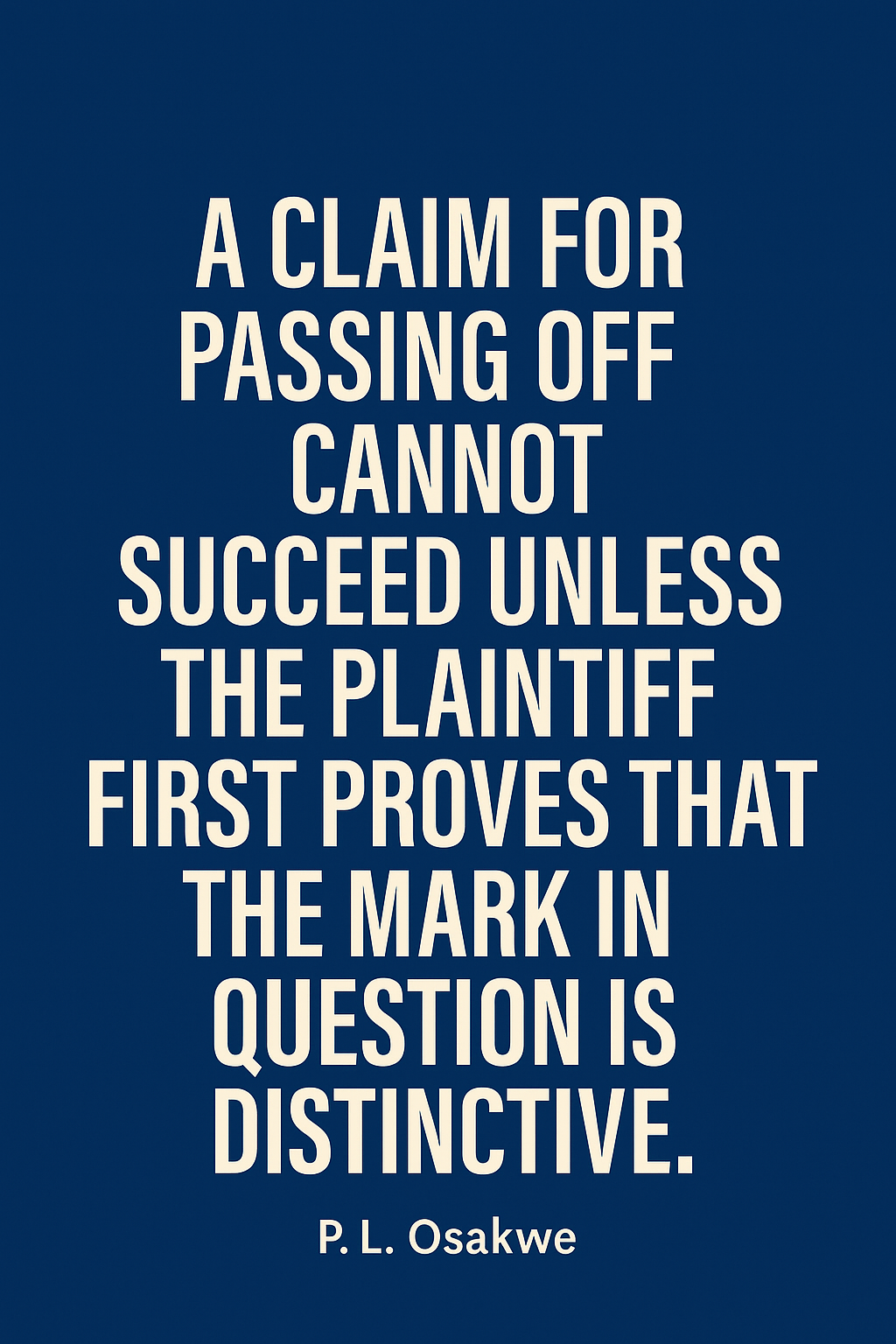By P.L. Osakwe
■ Introduction
What does it mean to infringe a trademark? Is infringement established only when two marks look exactly alike, or can it arise when the average consumer, relying only on memory, mistakes one for the other?
In the landmark case of Alban Pharmacy Ltd v. Sterling Products International Inc (1968) LPELR-25491(SC), the Supreme Court of Nigeria settled a crucial point: that the test of infringement is not a side-by-side comparison, but rather, whether the ordinary consumer, acting on general recollection, is likely to be deceived.
This case remains a judicial compass for trademark disputes in Nigeria and echoes global legal standards on consumer confusion.
■ Facts of the Case (Briefly).
Sterling Products International Inc., a foreign pharmaceutical company, sued Alban Pharmacy Ltd, a Nigerian company, for trademark infringement. Sterling had a registered trademark in Nigeria, which Alban Pharmacy allegedly imitated in the marketing and packaging of its own pharmaceutical products.
The central legal question was whether the Alban Pharmacy trademark was so similar to the registered one that a consumer would be misled, thereby constituting an infringement.
■ Judgment and Reasoning of the Supreme Court
At pages 5, paragraphs E–G, of the judgment, the Supreme Court laid down the test for trademark infringement as follows:
“The question is not whether if a person is looking at two trade marks side by side there would be a possibility of confusion; the question is whether the person who sees the proposed trade mark in the absence of the other trade mark, and in view only of his general recollection of what the nature of the other trade mark was, would be liable to be deceived and to think that the trade mark before him is the same as the other...”
This means that perfect comparison under ideal conditions is not the real-world test. In actual markets, consumers do not hold both products at the same time for forensic analysis. Instead, they act on impression, recollection, and trust, all of which can be exploited by a deceptive imitation.
■ Legal Principles from the Case
1. The Imperfect Recollection Doctrine
In assessing infringement, the court must consider the mental picture retained by the average buyer. If the infringing mark can reasonably trigger that memory, confusion is presumed, even if the marks differ when closely examined.
2. The Standard of the Average Consumer
The judgment centers on the ordinary person, not experts or trademark lawyers. The relevant consumer is assumed to have ordinary attention and imperfect memory, not one trained to spot nuanced differences.
3. Practical, Not Theoretical Confusion
It is not enough to argue that no one should be confused. If confusion could reasonably occur—based on visual similarity, market presence, and the nature of the goods—then infringement has likely occurred.
■ Implications for Trademark Law in Nigeria
The Alban Pharmacy case continues to be cited in Nigerian courts and legal scholarship because:
● It set a consumer-focused standard for assessing infringement.
● It protected the integrity of registered trademarks by broadening the scope of what counts as confusion.
● It ensured that the law stays realistic, acknowledging how consumers actually interact with brands.
This case aligns with the modern legal trend in trademark law seen in jurisdictions such as the UK, EU, and the US, where courts apply the "likelihood of confusion" test with emphasis on recollection and marketplace realities, not theoretical comparison.
■ Contemporary Relevance
In today’s crowded consumer markets, especially in sectors like pharmaceuticals, beverages, and cosmetics, visual branding is everything. Competitors may attempt to ride on the goodwill of established trademarks by adopting confusingly similar logos, packaging, or names.
The ruling in Alban Pharmacy Ltd v. Sterling Products Int’l provides trademark owners with judicial protection against such tactics, even where the infringing mark is not an exact replica.
♤ Conclusion
Trademark protection is about more than legal registration, it is about consumer perception. The Supreme Court in Alban Pharmacy Ltd v. Sterling Products Int’l Inc rightly recognized that a trademark lives in the memory of the customer, and it is this memory that the law must guard.
For businesses, the message is clear: if your mark can cause confusion, even unintentionally, you may be liable. And for rights holders, this case remains a powerful tool in defending your brand identity in Nigerian courts.

